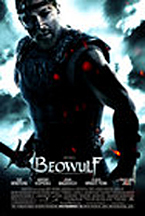
The digitally-rendered cinematic translation ofBeowulf,one of the oldest surviving poems in the English language, points to the epics timeless themes of heroic adventure and its moving portrayal of both glory and the cost of heroism, says University of Notre Dame English Professor Katherine OBrien OKeeffe, who specializes in Old English language and literature.
We ought hardly be surprised that such a rich and always surprising work of art such as Beowulfshould generate numerous creative responses,says OBrien OKeeffe.
But creative responses are never faithful- they are conversations, acts of homage or rebellions. However solemn – or silly – the forthcomingBeowulfmovie may be, it is simply positioning itself as another creative response, this time in 3-D digital special effects.
Even after more than a century of scholarship on the poem, contemporary scholars still cannot agree on the poems date, and it continues to be the subject of contemporary critical interest.
But instead of buying into some of the films advance publicity that attempts to position theBeowulfmovie as a teaching tool or an opportunity to introduce students to a literary classic, OBrien OKeeffe considers the movie to be fan fiction – in the realm ofHarry Potteror the countlessStar Trekepisodes.
Beowulfthe movie may bring some of us to laughter or tears, but it is certainly a welcome indication that the epic poem is alive and well in the 21st century.
Directed by Robert Zemeckis,Beowulfopens nationwide on Friday (November 16).
_ Media Advisory: OBrien OKeeffes comments may be used in whole or in part. She can be reached for further comment at 574-631-4702 or_ " Katherine.O.O’Keeffe.4@nd.edu ":mailto:Katherine.O.O’Keeffe.4@nd.edu _.
_
TopicID: 25406